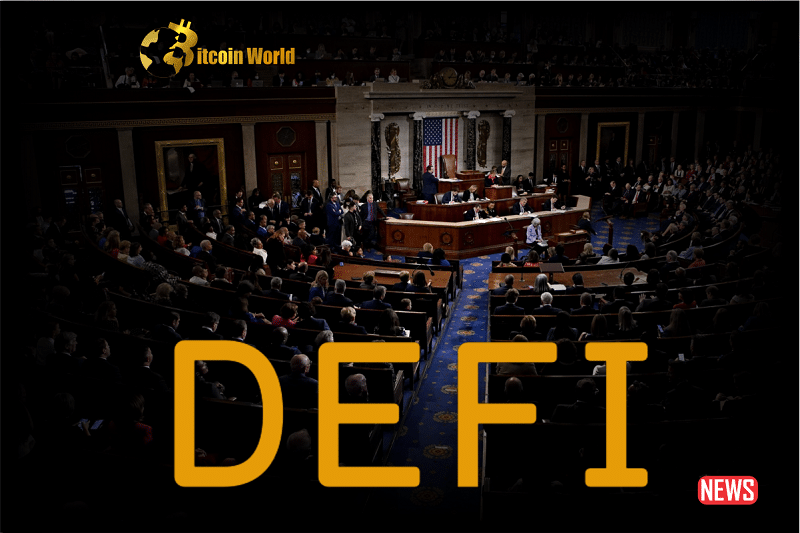
A Delicate Balancing Act: Crypto Regulations and Innovation
The world of cryptocurrencies and decentralized finance (DeFi) has been a hotbed of discussion in recent years, with its rapid growth and staying power garnering attention from policymakers and investors alike. However, regulating the crypto industry has proven to be a challenging task, as it necessitates striking a fine balance between investor protection, adherence to international laws, and fostering innovation.
CANSEE Act Faces Criticism: Crypto Community Voices Concerns
A group of bipartisan lawmakers in the United States has recently proposed the Crypto-Asset National Security Enhancement and Enforcement (CANSEE) Act to bring the DeFi sector under compliance with anti-money laundering (AML) rules. The bill aims to regulate DeFi protocols and the platforms that provide access to these protocols, placing them under similar scrutiny as traditional financial institutions.
According to the press statement, platforms such as decentralized exchanges and wallet providers will be held accountable for any AML and sanctions breaches occurring on their platforms. Additionally, if the protocol’s control is unclear, any entity investing over $25 million in its development will be responsible for fulfilling these obligations.
Crypto Community’s Outcry: Concerns Over Practicality and Impact
Despite the full bill not being published yet, the proposal has already faced significant backlash from the crypto community. Critics argue that the bill imposes impractical requirements on platforms, leading some to compare it to a “de facto ban.” Moreover, there are concerns that malicious actors may exploit such regulations, ultimately hindering innovation and development in the crypto space.
A Familiar Resemblance: CANSEE and Senator Elizabeth Warren’s Previous Effort
Interestingly, the bill bears similarities to a previous proposal put forth by Senator Elizabeth Warren in March 2022, known as the Digital Asset Sanctions Compliance Enhancement Act. Senators Jack Reed and Mark Warner, who are part of the CANSEE Act, were also signatories to the Warren bill. Despite this resemblance, the official draft of the CANSEE Act is yet to be publicly available.
Uncertain Future: Lawmakers’ Plans and Impact on Crypto Firms
While the CANSEE Act has been introduced, lawmakers do not plan to work on the bill this year. The lack of clear crypto guidelines and the ongoing enforcement actions have made the U.S. a challenging environment for many crypto firms. The introduction of bills like CANSEE adds to the growing anxiety within the crypto industry regarding potential regulatory hurdles.
In conclusion, the proposed CANSEE Act’s introduction has sparked significant controversy within the crypto community, as it raises concerns about its practicality and potential impact on innovation. As lawmakers continue to deliberate over crypto regulations, finding a delicate balance that ensures investor protection without stifling the industry’s growth remains a crucial challenge. As the landscape evolves, it is essential for stakeholders to work together to create regulations that promote responsible growth and foster a vibrant crypto ecosystem.
The post New U.S. Senate Bill Targets Bringing DeFi to Heel by Compliance appeared first on BitcoinWorld.














